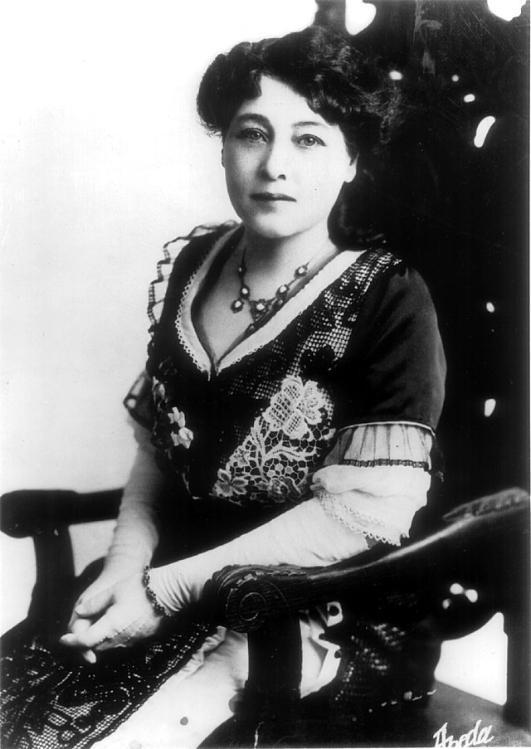,(1).png)
This International Women’s Day, student Liddie Thomas, would like to highlight someone in the film industry who has inspired her immensely: Alice Guy Blaché.
During my French A Level, I briefly studied The Lumière Brothers, who invented the moving picture (a.k.a the movie), and after learning about other memorable figures from this time, I couldn’t help but notice the apparent lack of female filmmakers. I decided to do my own research and I came across Alice Guy Blaché, the first ever female filmmaker (and perhaps the first ever creator of a narrative film, though this is still debated). Alice was the first of her kind and had the opportunity to be one of the best, however the patriarchal environment dictated her legacy. There is not much information about her due to this and she is not widely taught in schools and universities. I am hoping that spreading some information about her will help people to understand how far women filmmakers have come and how much more work there is to do.
Alice Guy Blaché was born in 1873 in Saint Mandé, France. After her father died and her mother was unsuccessful in the workplace, Alice trained as a typer and stenographer in order to support herself and her mother. In 1894, she began working at the ‘Comptoir general de la photographie’ as a secretary, though the company soon changed hands and was sold to four men, Gustave Eiffel and Léon Gaumont being two of the most memorable of these figures. Gustave Eiffel (who we know now as the man who built the Eiffel Tower!) was president of the company, and Léon Gaumont was the manager. The company was named after Gaumont and is still widely considered the leading film studio and production company in France today.
Alice Guy Blaché and Léon Gaumont attended an event hosted by the Lumières Brothers on the 22nd March 1895, which turned out to be the first demonstration of a film production. Inspired by ‘Workers Leaving the Lumière Factory’, Alice Guy Blaché directed, produced and starred in her first film ‘La Fée aux Choux’ (The Cabbage Fairy).The film was a success and Gaumont promoted Alice to head of production, and she became known as the first filmmaker to systematically develop narrative filmmaking.

Photograph of Alice Guy Blaché taken in 1913.
During her time at Gaumont, she mostly made comedies involving slapstick humour and dancing. In 1906, she made La Vie du Christ (The Life of Christ) which was a big-budget production at the time, including 300 extras and elaborate set designs. She was also one of the pioneers of using audio recordings alongside her films and also explored colour/tinted film by soaking the film in dye and staining the film emulsion.
In 1907, Alice married Herbert Blaché who also worked in the industry, and they later moved to the United States following Herbert's promotion as manager for Gaumont’s operations in their US headquarters. Alice had to quit her job for the move but in 1910 she created The Solax Company in Fort Lee, New Jersey, the largest pre-Hollywood studio in America. With this, she became the first ever woman to run her own studio. At the end of her career, she is believed to have directed over 1,000 films, including approximately 150 which have survived, and 22 of which are feature-length.
I am still in awe of Alice’s influence on cinema, even today, for example, her initial use of close-ups has inspired the likes of Steven Spielberg (think of the scene on the beach in ‘Jaws’ where Chief Brody watches the children playing in the sea) and David Fincher. Alice Guy Blaché has inspired me hugely as she thrived in a male dominated society as a filmmaker and unapologetically continued her ventures in the field.
To find out more about Alice's incredible story, I have a few links of interest, including a trailer for a documentary that I love:
Trailer for Be Natural: The Untold Story of Alice Guy-Blache